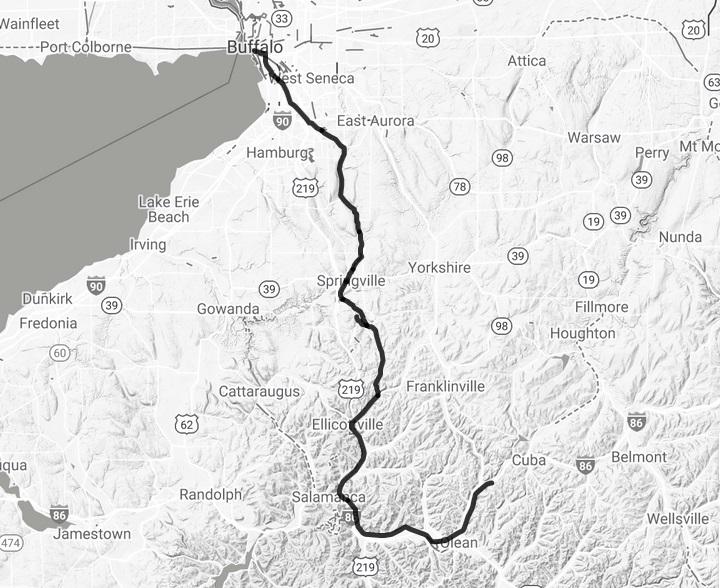An overview of the project, and an opportunity for the public to comment, is established on the project’s website, SouthernTierTrail.org. Among the public awareness campaigns is a virtual meeting, scheduled for Wednesday May 13 from 6 p.m. until 7 p.m.
“This feasibility study for the Southern Tier Trail includes an analysis of existing conditions along the corridor, conceptual trail plan, cost estimates and recommended implementation and business development strategies all grounded in a robust public engagement process,” said Justin Booth, executive director of GObike Buffalo. “The final report is going to be produced by Aldi Planning and Design and is anticipated in the winter of 2020.”
The hope is for construction to begin within the next five years. The Southern Tier Trail would pass through Springville, Ellicottville, Salamanca and Olean before concluding in Hinsdale. Aldi Planning and Design senior advisor Jeff Olson, who is also Principal-in-Charge for the Empire State Trail project, says such trails where they already exist have proven to be useful for regional and local economies.
“People have turned to their trails and parks and public spaces as a place for mobility for recreation, for both mental and physical health,” he said. “And one of the challenges we’re faced with is not enough communities having that kind of access. And as we begin to rethink and restart the economy, projects like this can really help transform communities in a very positive way.”
Ashley Smith, GObike Buffalo’s deputy director and project manager for the Southern Tier Trail, says some of the economic benefits come from the healthy habits these trails foster.
“Additionally, the trail could provide a lot of health impacts for area residents and visitors. Similar studies – I believe this is referencing the Erie Canal Trail study – shows that for every one dollar that we invest in recreation trails like these, that it can yield up to three dollars in direct medical benefit for area residents,” she said. “Additionally, based on analyses of the economic impacts of the Erie Canal Trail, we could also see increased sales and local economic impacts.”
The estimated cost of the project is somewhere between $100 million to $110 million. The Ralph C. Wilson J. Foundation and Community Foundation for Greater Buffalo have committed some funds but Booth stated that they are seeking other sources, including state and federal grants.
